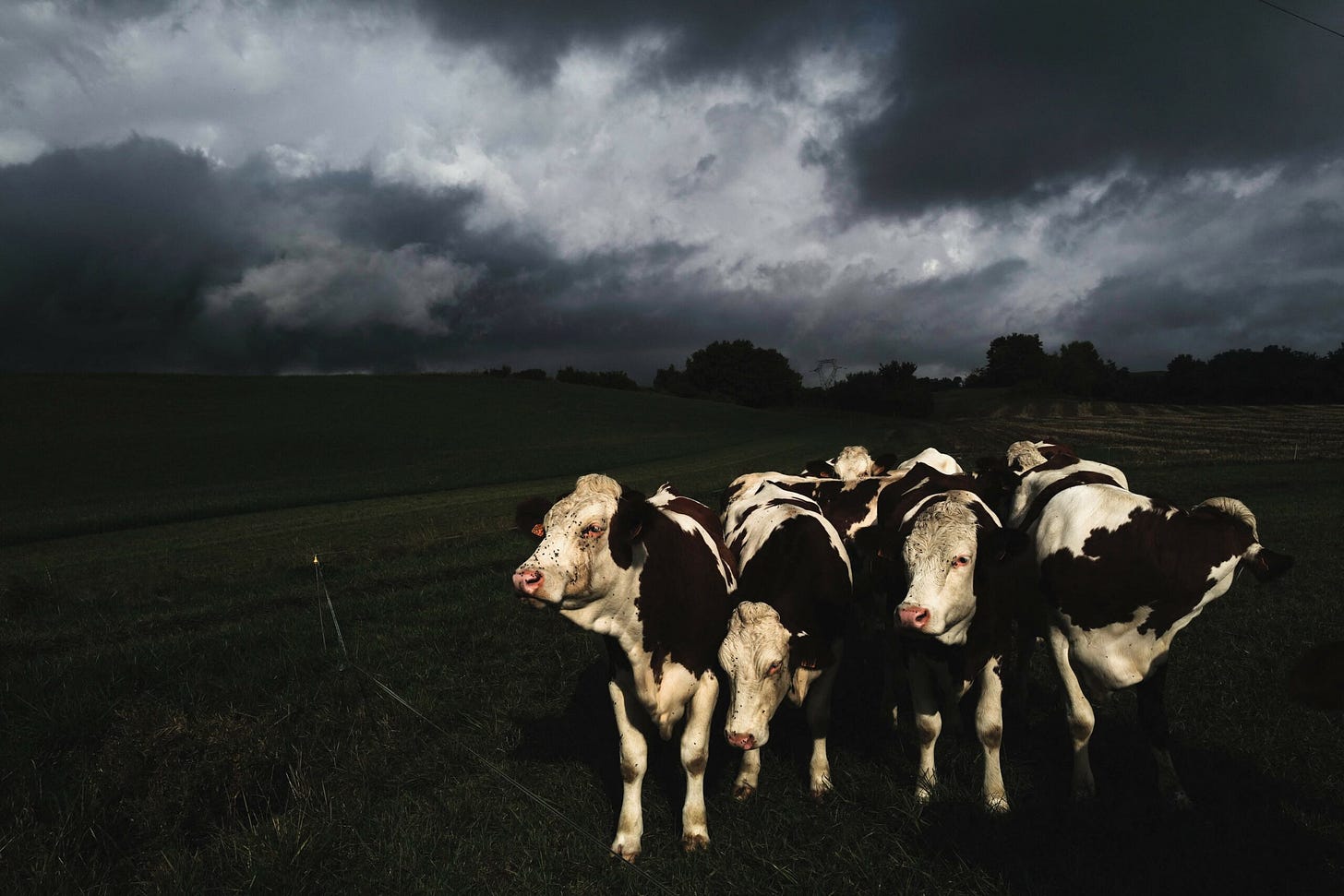This Thanksgiving, Listen
We could all use more hope.

We are heading towards the dark months when students approach the stress of finals, upcoming holidays, and possibly getting the flu or COVID. Again. And now another school shooting on November 13 in Charlottesville, Virginia, with three University of Virginia students killed and two more wounded, the mass shooting last weekend at an LGBTQ club in Colorado Springs, and Tuesday night’s shooting inside a Walmart in Chesapeake, Virginia, killing six people, likely triggering many students to recall other such shootings, perhaps from their own pasts.
We don’t know yet what caused 22-year-old University of Virginia student Christopher Darnell Jones Jr., to shoot and kill his fellow students, but we should worry about the effects of mounting stress on our young ones. In high school, Jones was a good student, earning Student of the Year twice. He was a member of the National Honor Society and the National Technical Honor Society, as well as president of Key Club and president of Jobs for Virginia Grads Program. What happened?
I taught literature and creative writing at a small liberal arts college in Indiana. Students often came to me overwhelmed with personal and academic troubles, especially right before the holidays.
I never faced a school shooting, but as a teacher, I was prepared for the possibility. In workshops, a local police officer talked to us teachers regularly about disaster preparedness, but we never had any such workshops on what to do to save or help students who came to us overwhelmed with stress, anxiety, anger, bipolar disorders, ADHD, or other mental health conditions.
All we knew to do was listen.
Once, in class, while we discussed an essay about an undertaker, a student slid down in his chair and passed out. Another student went immediately to his aid so he didn’t hit his head. Another called 911. My response was delayed, but we all worked together until the ambulance came and took him on a stretcher to the hospital.
Back then, I knew my students had a lot to contend with—grades, finals, their futures, difficult families, drugs, financial problems, student debt. These days, student stress has multiplied. The pandemic has taken its toll. Students are behind academically, and in many cases, socially. Many suffer from anxiety and depression. According to the Anxiety and Depression Association of America, 80 percent of U.S. students report feeling stressed sometimes or often, while 34 percent felt depression. Our students are anxious about politics, race, bullying in social media, the sagging economy, the skyrocketing costs of university education, and their future job prospects. Add to this, school shootings.
After being stuck at home for much of the last two or three years, some students may not have the skill sets or resources to seek help.
I have retired from teaching, but I think of the coming dark months at schools everywhere, and I can’t help but worry.
The holidays can be restorative, but they can be stressful, too. If we’re lucky, we enjoy being together with family and friends. We build fires and stare into them, thinking of the warmth of July.
I recently reread Cormac McCarthy’s The Road, about a father and son walking their way south to supposed safety in a post-apocalyptic America. Their circumstances are dire. The planet has been demolished. There is no food to be found. They encounter a few survivors who want to kill and eat them. How to go on? Carry the fire, the father urges the boy. You must carry and keep the fire. They needed the fire to stay warm, but they also needed hope.
I recall when the boy who fainted came back to class. It was on a Monday. He thanked the class for their help, adding he’d been under a lot of stress. I brought in a tray of fruit and vegetables and urged my students to eat well and take care of themselves. I handed out Leonardo da Vinci’s list of ways to stay healthy. Beware of anger and avoid grievous moods, he wrote. Rest your head and keep your mind cheerful. Let your wine be mixed with water, take a little at a time, not between meals and not on an empty stomach.
How are we supposed to get drunk? one student joked.
The boy who fainted laughed. His color was back. Later that day, he came to my office. Just to talk.
Thanksgiving is upon us. We must be kind. We need to put down our phones and listen. We must carry and keep the fire for us and especially for our young ones. We could all use more hope.
That day, after we ate together, we read Gerard Manley Hopkins, and we talked about unlikely things to praise. Dappled things like brinded cows, rose-moles, trout, finches’ wings, and landscapes plotted, pieced, fallow and ploughed. It was snowing outside and our classroom was cold.
We read the last few lines of “Pied Beauty” again:
All things counter, original, spare, strange, Whatever is fickle, freckled (who knows how?) With swift, slow; sweet, sour; adazzle, dim. He fathers-forth whose beauty is past change; Praise him.
We took out paper and pens. We made lists of what to be grateful for, praising everything as though it were spring.

